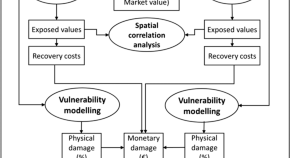Collection
Special Issue: Multimodal Characterization of Built and Natural Environments for Multi-Risk Assessment
- Submission status
- Closed
Global urbanization processes and population growth are reshaping the surface of our planet. Natural hazards that had little impact in the past, when they hit sparsely populated and spatially fragmented settlement areas, affect urban agglomerations with millions of people nowadays. At the same time, numerous hazards do not occur in an isolated manner but form complex chains of events with disastrous cascading effects.
In order to mitigate affiliated perils, detailed information about multi-risk situations is required. However, the quantification of such risks poses major challenges regarding the comprehensiveness of data, tailored analysis methods, and valid modelling techniques. Remarkably, a vast body of technologies emerged over the last decades comprising novel data collections mechanisms and interpretation techniques. Today, sensor data from multiple sources (i.e., modalities) capturing built and natural environments are almost ubiquitously available. This includes ground-based imagery, geo-located social media data, various sources of Volunteered Geographic Information (VGI), as well as earth observation data, among others. To extract relevant thematic information from the data, novel methods related to the field of Artificial Intelligence (AI) and machine learning are increasingly deployed.
Consequently, the overall aim of this Special Issue is to inform the multi-disciplinary risk community on the latest developments, capabilities, and limitations regarding the multimodal characterization of built and natural environments regarding risk-related properties (with particular focus on exposure and vulnerability) for usage in multi-risk assessment approaches.
Editors
-
Christian Geiß
Geiß received the M.Sc. degree in applied geoinformatics from the Paris Lodron University of Salzburg, Salzburg, Austria, in 2010 and the Ph.D. degree (Dr. rer. nat.) from the Humboldt University of Berlin, Berlin, Germany, in 2014. Since 2010, he is with the German Remote Sensing Data Center (DFD) of the German Aerospace Center (DLR). In 2017, he was also with the Cambridge University Centre for Risk in the Built Environment (CURBE), University of Cambridge, UK, as a visiting scholar. He is currently pursuing a habilitation in Geography with the University of Würzburg.
-
Elisabeth Schoepfer
Schöpfer received the degree in geography in 2001, and the Ph.D. degree in geography, with special emphasis on remote sensing and geographic information science, in 2005 from the University of Salzburg, Austria. Since 2009 she is working at German Remote Sensing Data Center (DFD) of the German Aerospace Center (DLR), Oberpfaffenhofen, Germany. Since November 2017 Elisabeth is coordinating the research project RIESGOS “Multi-risk analysis and information system components for the Andes region” funded by the German Federal Ministry of Education and Research (BMBF).
-
Torsten Riedlinger
Riedlinger is deputy head of DLR-DFD's department "Geo-risks and Civil security" and is leading a research team on topics related to geomatics, early warning and the development of environmental and crisis information systems. He holds a PhD in Applied Geoscience from the Julius-Maximilians-University of Würzburg (Germany) from 2006 and has a master degree in physical geography (1999). His main research topics are related to disaster management, emergency response, security research, geo-risks, decision support and early warning.
-
Hannes Taubenböck
Taubenböck received the Diploma degree in geography from the Ludwig-Maximilians Universität München, Munich, Germany, in 2004, and the Ph.D. degree (Dr.rer.nat.) in geography from the Julius Maximilian’s University of Würzburg, Würzburg, Germany, in 2008. In 2019 he habilitated at the University of Würzburg in Geography. His research interests include urban remote sensing topics, from the development of algorithms for information extraction to value-adding to classification products for findings in urban geography.
Articles (22 in this collection)
-
-
Border-independent multi-functional, multi-hazard exposure modelling in Alpine regions
Authors (first, second and last of 5)
- M. Pittore
- P. Campalani
- F. Tagliavini
- Content type: Original Paper
- Open Access
- Published: 28 September 2023
- Pages: 837 - 858
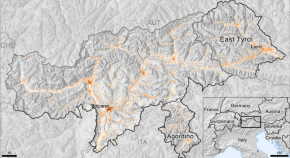
-
From science to practical applications in disaster management: views from UN-SPIDER
Authors
- Juan Carlos Villagran de Leon
- Content type: Original Paper
- Published: 11 May 2023
- Pages: 1131 - 1136
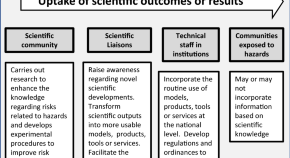
-
The relationship between multiple hazards and deprivation using open geospatial data and machine learning
Authors (first, second and last of 4)
- Priscilla Kabiru
- Monika Kuffer
- Sabine Vanhuysse
- Content type: Original Paper
- Open Access
- Published: 17 March 2023
- Pages: 907 - 941
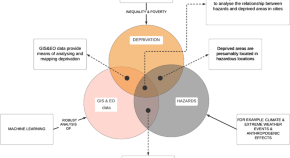
-
Remote sensing for natural catastrophe risk management: closing the gap between ambition and capability
Authors
- M. Klotz
- M. Aichinger
- M. Keilbach
- Content type: Original Paper
- Published: 10 March 2023
- Pages: 1141 - 1143
-
Reporting from the front
Authors
- Christian Werthmann
- Content type: Short Communication
- Open Access
- Published: 06 February 2023
- Pages: 1145 - 1148
-
A simplified methodology for rapid Natech risk assessment of flood-wind-hail multi-hazard scenario
Authors
- Jiajun Wang
- Wenguo Weng
- Content type: Original Paper
- Published: 20 January 2023
- Pages: 965 - 987

-
Hazard and risk assessment for early phase road planning in Norway
Authors
- Anders Solheim
- Kjetil Sverdrup-Thygeson
- Bjørn Kalsnes
- Content type: Original Paper
- Open Access
- Published: 10 January 2023
- Pages: 943 - 963
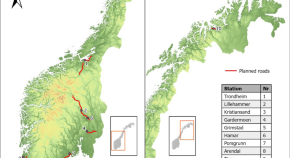
-
Multitemporal landslide exposure and vulnerability assessment in Medellín, Colombia
Authors (first, second and last of 5)
- Marlene Kühnl
- Marta Sapena
- Hannes Taubenböck
- Content type: Original Paper
- Open Access
- Published: 04 November 2022
- Pages: 883 - 906
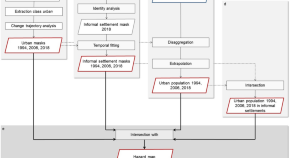
-
Benefits of global earth observation missions for disaggregation of exposure data and earthquake loss modeling: evidence from Santiago de Chile
Authors (first, second and last of 13)
- Christian Geiß
- Peter Priesmeier
- Hannes Taubenböck
- Content type: Original Paper
- Open Access
- Published: 04 November 2022
- Pages: 779 - 804
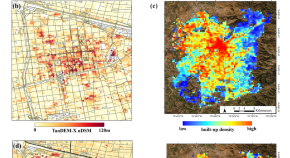
-
Earthquake fatalities and potency
Authors
- Max Wyss
- Michel Speiser
- Stavros Tolis
- Content type: Original Paper
- Open Access
- Published: 21 October 2022
- Pages: 1091 - 1106

-
RiskScape: a flexible multi-hazard risk modelling engine
Authors (first, second and last of 10)
- Ryan Paulik
- Nick Horspool
- Russel Garlick
- Content type: Original Paper
- Open Access
- Published: 17 September 2022
- Pages: 1073 - 1090
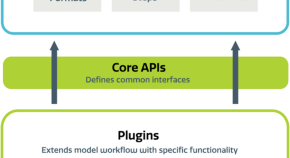
-
Mapping and characterising buildings for flood exposure analysis using open-source data and artificial intelligence
Authors (first, second and last of 4)
- Kushanav Bhuyan
- Cees Van Westen
- Sansar Raj Meena
- Content type: Original Paper
- Open Access
- Published: 17 September 2022
- Pages: 805 - 835
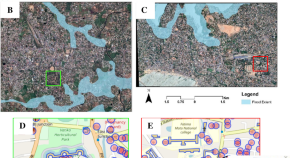
-
Data and its role in reducing the risk of disasters in the built environment
Authors
- Emily So
- Content type: Original Paper
- Open Access
- Published: 05 September 2022
- Pages: 1127 - 1130
-
Peri-urban growth into natural hazard-prone areas: mapping exposure transformation of the built environment in Nairobi and Nyeri, Kenya, from 1948 to today
Authors
- Alexander Fekete
- Content type: Original Paper
- Open Access
- Published: 21 August 2022
- Pages: 859 - 882
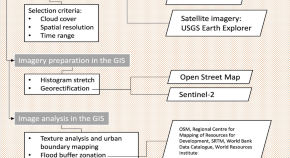
-
Challenges and opportunities using new modalities and technologies for multi-risk management
Authors
- Benni Thiebes
- Ronja Winkhardt-Enz
- Content type: Original Paper
- Published: 09 August 2022
- Pages: 1137 - 1140
-
Influence of cross-scale measures on neighborhood resilience
Authors (first, second and last of 4)
- Kyle D. Buck
- Rebecca J. Dunn
- Justin J. Bousquin
- Content type: Original Paper
- Published: 09 August 2022
- Pages: 1011 - 1040

-
The adolescent years of seismic risk assessment
Authors
- Vitor Silva
- Content type: Original Paper
- Published: 06 August 2022
- Pages: 1107 - 1112
-
Increasing risk of cascading hazards in the central Himalayas
Authors (first, second and last of 10)
- Sanjib Sharma
- Rocky Talchabhadel
- Saurav Kumar
- Content type: Original Paper
- Published: 06 July 2022
- Pages: 1117 - 1126

-
Unzipping flood vulnerability and functionality loss: tale of struggle for existence of riparian buildings
Authors (first, second and last of 18)
- Dipendra Gautam
- Rabindra Adhikari
- Rajesh Rupakhety
- Content type: Original Paper
- Open Access
- Published: 18 June 2022
- Pages: 989 - 1009
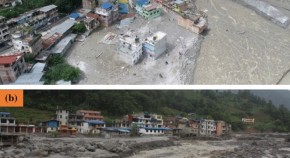
-
Flood risk from geophysical and hydroclimatic hazards: an essential integration for disaster risk management and climate change adaptation in the coastal zone
Authors
- Rodrigo Cienfuegos
- Content type: Original Paper
- Published: 02 June 2022
- Pages: 1113 - 1115
-
Multi-risk assessment in a historical city
Authors (first, second and last of 7)
- C. Arrighi
- M. Tanganelli
- M. De Stefano
- Content type: Original Paper
- Open Access
- Published: 01 January 2022
- Pages: 1041 - 1072
